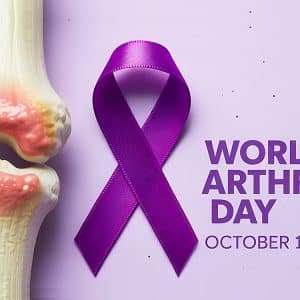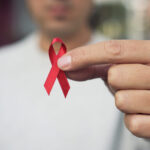Dr. Mehdi Abd Al-Sahib – Orthopedic Surgeon
Lung cancer is one of the most common cancers in the world, so the month of November is dedicated to it every year to educate people about its danger. It is a fact that (1.76) million deaths occur in the world due to lung cancer, and it is considered the number one cause of death among types of cancer in males and females. It is worth noting that (90%) of lung cancer deaths are caused by smoking.
Risk Factors:
- Smoking. The risk of lung cancer increases with the number of cigarettes smoked per day and the number of years of smoking. Cigarette smoke is full of carcinogens that cause changes in lung tissue. With each exposure to these substances, the normal cells that line the lungs are increasingly damaged. Over time, the damage causes cells to function abnormally and may eventually develop into cancer. Quitting smoking at any age can greatly reduce your chances of developing lung cancer.
- Exposure to secondhand smoking. The chances of developing lung cancer increase even if a person is a non-smoker, but lives with smokers.
- Exposure to radiation, such as radiation therapy.
- Exposure to radon gas produced through the natural decomposition of uranium in soil, rocks and water, which eventually becomes part of the air you breathe.
- Exposure to asbestos and other carcinogens, such as arsenic, chromium, and nickel – increases the chances of developing lung cancer, especially for a smoker.
- Family history of lung cancer. People whose parents, siblings, or children have had lung cancer, have an increased chance of developing lung cancer.
Signs and Symptoms:
- Signs and symptoms may not appear in the early stages of cancer.
- They usually appear as the disease progresses. The most important signs and symptoms include:
- Coughing, or coughing up blood, even in small amounts.
- Shortness of breath, chest pain, and sometimes hoarseness.
- Loss of weight and appetite.
- Pain in the bones.
- Sometimes a headache.
Complications:
- Shortness of breath. The main reason is the increase in the size of the cancerous tumor, which leads to blockage in the main airways. Another reason is fluid buildup around the lungs, which makes it difficult for the affected lung to fully expand upon inspiration.
- Coughing up blood (hemoptysis). Lung cancer can cause airway bleeding.
- The spread of the disease to other areas such as the bones and the brain, which causes pain.
Protection:
There is no sure way to prevent lung cancer, but you can reduce your risk by:
- Quitting smoking.
- Avoiding smokers (secondhand smoking).
- Checking radon levels in the home, especially in areas where radon is known to be a problem. High radon levels can be reduced to make the home safer. For information about radon testing, contact the Public Health Department.
- Avoiding carcinogens at work, and taking the necessary precautions for protection such as using a face mask.
- Following a diet full of fruits and vegetables. Not taking large doses of vitamins in tablet form as they may be harmful.
- Exercising most days of the week, regularly and gradually.










